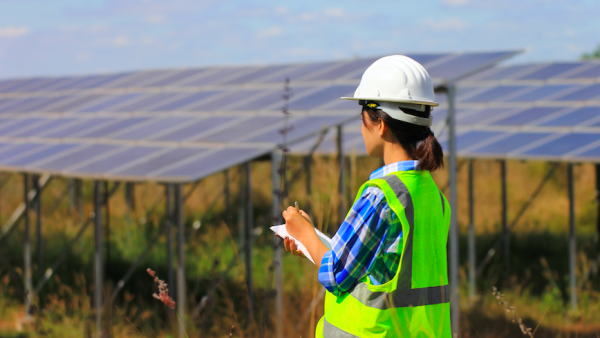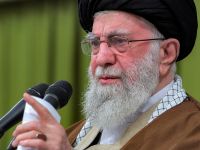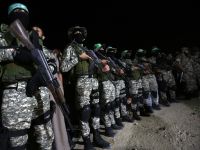Every day at 8 a.m., a group of 13 young women clamber up a ladder onto the roof of a large grey shed to get to work under the morning sun. They are Lebanon’s first all-female solar team, training to install panels that will power a waste-sorting facility in the rocky hills above Lake Qaraoun, in the West Bekaa Valley.
“We are doing something people think women can’t do,” 23-year-old Raja told The Daily Star. “They think only men can climb up on the roof and do something like this.”
For six hours a day, five days a week, the team supported by local NGO Renewable Innovation for Sustainability and Environment (RISE 2030) study and practice how to fit together and position solar panels that, once switched on, will mean the waste sorting plant will run solely on renewable energy.
“This facility is a model for a totally sustainable facility,” said Ryme Assad, RISE 2030’s executive director.
The waste sorting facility, which receives waste from six local municipalities, will soon run on 100 percent sustainable energy, explained Nader Shehadeh, the project’s technical consultant.
Paper, plastic, cans and aluminium are manually removed and sorted from a conveyor belt running through the shed and compressed into large cube-shaped bales, which are then sold on to recycling facilities.
The project is run by RISE 2020 with the support of the German government, the Social Affairs Ministry and the Federation of Bouhayra Municipalities.
Twenty-five out of more than 100 applicants were selected to take part in the project based on character, need, experience and even whether they had a fear of heights, explained Assaad.
Initially, the 12 men and 13 women accepted onto the project were put together in one group. However, “the women weren’t interacting very well and the men were taking charge,” Assaad said.
Based on conversations with the women themselves and consultations with relevant NGOs, RISE 2030 decided to create a women-only team of trainees.
Not only were the women more comfortable working on their own, Assaad said, but once they learned that they were female “pioneers” in the field, they became even more motivated.
“They really felt they were achieving something.”
Out of all working women in Lebanon, less than one percent work in the construction sector, according to a 2011 study by Lebanon’s Central Administration of Statistics.
“Unfortunately many people think that this specialism is for men only,” said 29-year-old computer and telecoms engineer Hiba, who is now studying for a doctorate and the project’s only female supervisor.
“But that’s not true. We are showing that not everything is about men.”
From start to finish the women took the lead, meaning once the program ends at the end of March, they will be fully qualified and ready to enter into the world of work.
“We started with theoretical training, introducing [the women] to the topic of solar energy and different solar panel designs,” Shehadeh said.
“Then, they started connecting and testing on the ground.”
Installing and removing large, heavy solar panels is hungry work. Every day, Zeinab Abbas, the head of a local women’s association, brings fresh manakeesh loaded with za'atar or keshek to the team.
After checking the safety of the shed’s roof, the women competed in small teams to draw up the best design on how to arrange the metal structures that the solar panels would be fitted to.
Now, after weeks of training, the team is ready to fit the panels permanently. By the end of the month, the plant should be fully operational.
“Even though I studied engineering, this is the first time I’ve actually come to a site like this,” Hiba said.
“What’s great about this is that we did all the theory and then implemented it on the ground.”
The women come from a range of backgrounds, including Syrian refugees, local residents and design graduates.
“I’ve learned to cooperate and work with people from other backgrounds,” Raja said. “I’m really proud to be working with these women.”
Thanks to the skills they have gained during the project, 40 percent of the trainees have already found part-time job opportunities in sustainability or agriculture.
“This project offered a lot of different opportunities,” said Noura.
Noura speaks five languages and has been giving literacy lessons during the team’s one hour break, teaching women how to write key solar-energy related words, like “electricity” or “panels.”
“We don’t need to depend on men. We can work in any field we want.”








